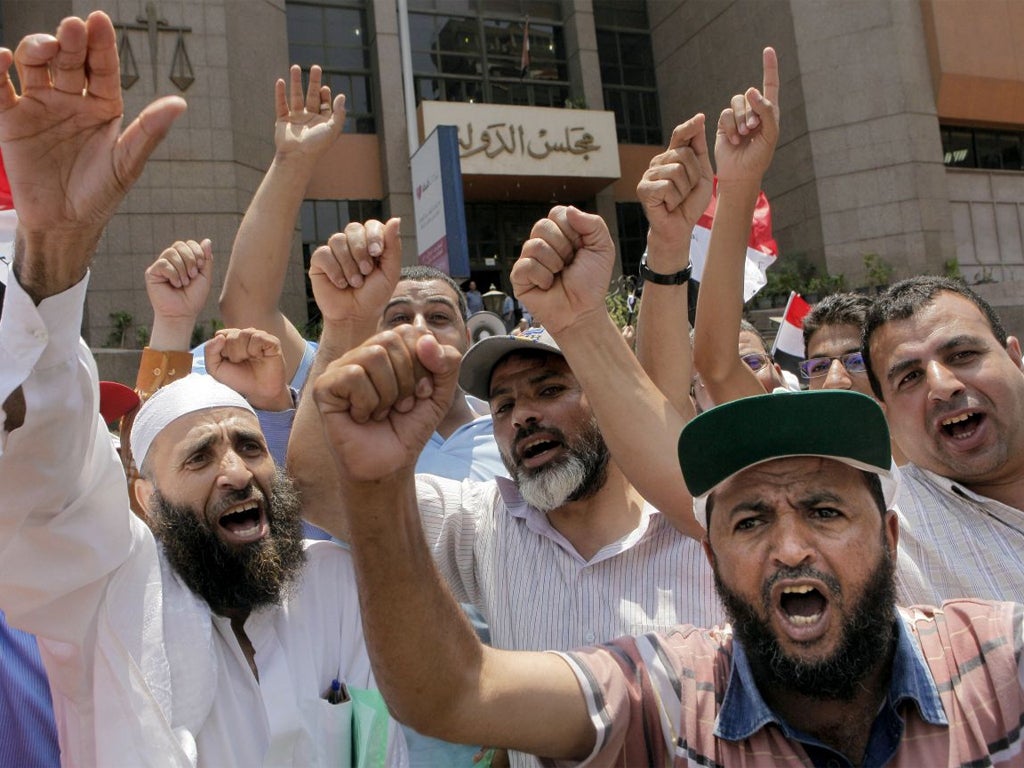Robert Fisk: A truce is declared in Egypt and the revolution continues – for now


Your support helps us to tell the story
From reproductive rights to climate change to Big Tech, The Independent is on the ground when the story is developing. Whether it's investigating the financials of Elon Musk's pro-Trump PAC or producing our latest documentary, 'The A Word', which shines a light on the American women fighting for reproductive rights, we know how important it is to parse out the facts from the messaging.
At such a critical moment in US history, we need reporters on the ground. Your donation allows us to keep sending journalists to speak to both sides of the story.
The Independent is trusted by Americans across the entire political spectrum. And unlike many other quality news outlets, we choose not to lock Americans out of our reporting and analysis with paywalls. We believe quality journalism should be available to everyone, paid for by those who can afford it.
Your support makes all the difference.Forget about "increased tensions" between Egypt's new President and the dark power of the country's wealthy generals. Yesterday's convening of parliament in Cairo – in violation of a supreme court decision – was an "understanding" between Mohamed Morsi and the army élite that the antagonism between them must go no further.
So when Morsi's Speaker of parliament, Saad al-Katatni (a Muslim Brotherhood acolyte) told parliament, as relayed on state television, that they were gathered to review the rulings of the court (packed with ex-Mubarak acolytes), he was speaking within the limits of legality.
The clue to all this came on Monday when Field Marshal Tantawi, the head of the Supreme Military Council, explained that his decision to dissolve the Brotherhood-dominated parliament had merely been "an executive decision of the constitutional court's ruling". He was followed almost at once – in identical words – by Morsi who claimed that he was issuing "an executive order" to convene the body. In other words, everyone is now waving flags of truce.
The good news is that the new head of the court, appointed last week, is a good guy, known for his probity and anti-élitism. So there is a way out.
And over all these theatricals, of course, towers "the street", the hundreds of thousands – nay, millions – whom the army and ex-Mubarak satraps in the court know Morsi can call upon to demand his rights. Some may call this a balance of power, but there are a few dark shadows around. Not the least of these – sadly – was the absence at the sitting yesterday of some secular and independent members of parliament who, outnumbered by Islamists in the assembly, had no great desire for the "dissolved" parliament to return.
By their abstention, they aligned themselves – unwittingly, as the phrase goes – with the very ex-Mubarakites they fought so courageously during last year's revolution against the dictatorship. If the real revolutionaries lost the parliamentary elections (which they clearly did) then why do they now oppose the very democracy they struggled for, just because Egyptians preferred Islamist members of parliament to non-Islamist ones?
Either way, the 508-seat parliament is clearly back in business, albeit symbolically, and the first 10 days of Morsi's presidency have passed off peacefully – so far – proving (touch wood) that counter-revolutions don't always have to be successful. "Tensions lowered" then, for now.
Join our commenting forum
Join thought-provoking conversations, follow other Independent readers and see their replies
0Comments